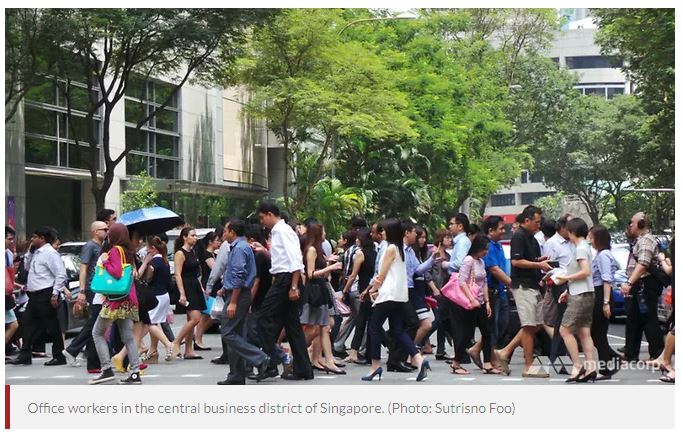Singapore ranks 32 out of 40 for work-life balance, second most overworked city
SINGAPORE: Singapore was among the bottom 10 for work-life balance and ranked the second most overworked city in a study of 40 cities released on Wednesday (Aug 7).
The study by tech company Kisi showed Singapore came in 32nd among the 40 cities on the list for work-life balance. Helsinki nabbed the top spot, followed by Munich, Oslo, Hamburg and Stockholm. Kuala Lumpur was ranked last, with Tokyo close behind.
Singapore was second only to Tokyo in a ranking for the most overworked cities.

The cities included in the 2019 Work–Life Balance Index are “known for attracting professionals and families for their work opportunities and diverse lifestyle offerings”, the study said.
They were ranked based on factors like the average number of hours worked per week, minimum number of vacation days offered, average amount of time spent travelling to work, gender parity, and perceived level of happiness.
In Singapore, 23 per cent of people worked more than 48 hours per week and workers began their work day at 9.34am on average, the study showed.
Workers in Singapore worked an average of 44.6 hours a week, exceeded only by employees in Kuala Lumpur with 46 hours, according to the survey. In contrast, people in Oslo worked 38.9 hours a week, the fewest among the 40 cities.
Workers were offered seven minimum vacation days and took 14 vacation days on average.
The city ranked 11 for gender equality and had the highest safety score. It was ranked seventh for perceived happiness and 17th for “stress-inducing factors”, such as a city’s population density, transport and infrastructure, climate, and local economy.
The study drew on sources like Kisi’s own internal data, the International Labour Organisation and Expedia.
CEO of Kisi Bernhard Mehl said: “It is important for us to note that our professional and personal lives are not, and should not be, mutually exclusive.
“Despite living in an era where unprecedented advancements have been made in technology and connectivity, we have failed to address the most everyday aspect of enhancing our everyday lives – finding the balance between work and leisure.
“Whether it’s the long hours, unrealistic expectations from bosses or job insecurity, workplace stress has proven to affect our physical and mental health.
“As long as employees are stressed, they will not take advantage of the safeguards created for their well-being – no matter how progressive government and company reforms are.”
The company added the index was not designed to be a city livability index, nor is it intended to highlight the best cities to work in.
“Iinstead, it aims to be a guideline for cities to benchmark their ability to support the fulfilment of residents’ lives by improving the aspects of life that help relieve work-related stress and intensity,” Kisi said.
Source: CNA/aa(hm/mi)


 English
English




